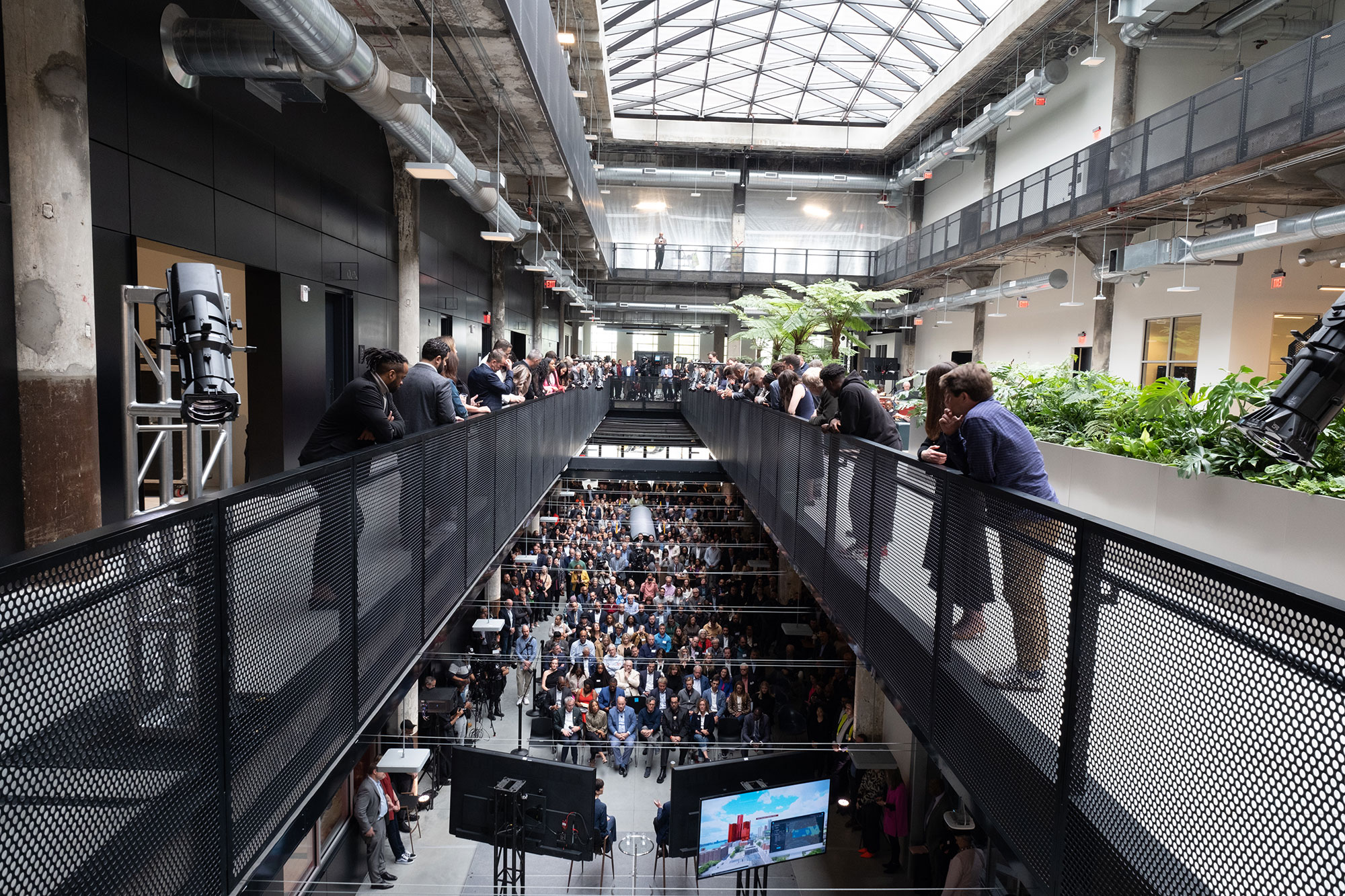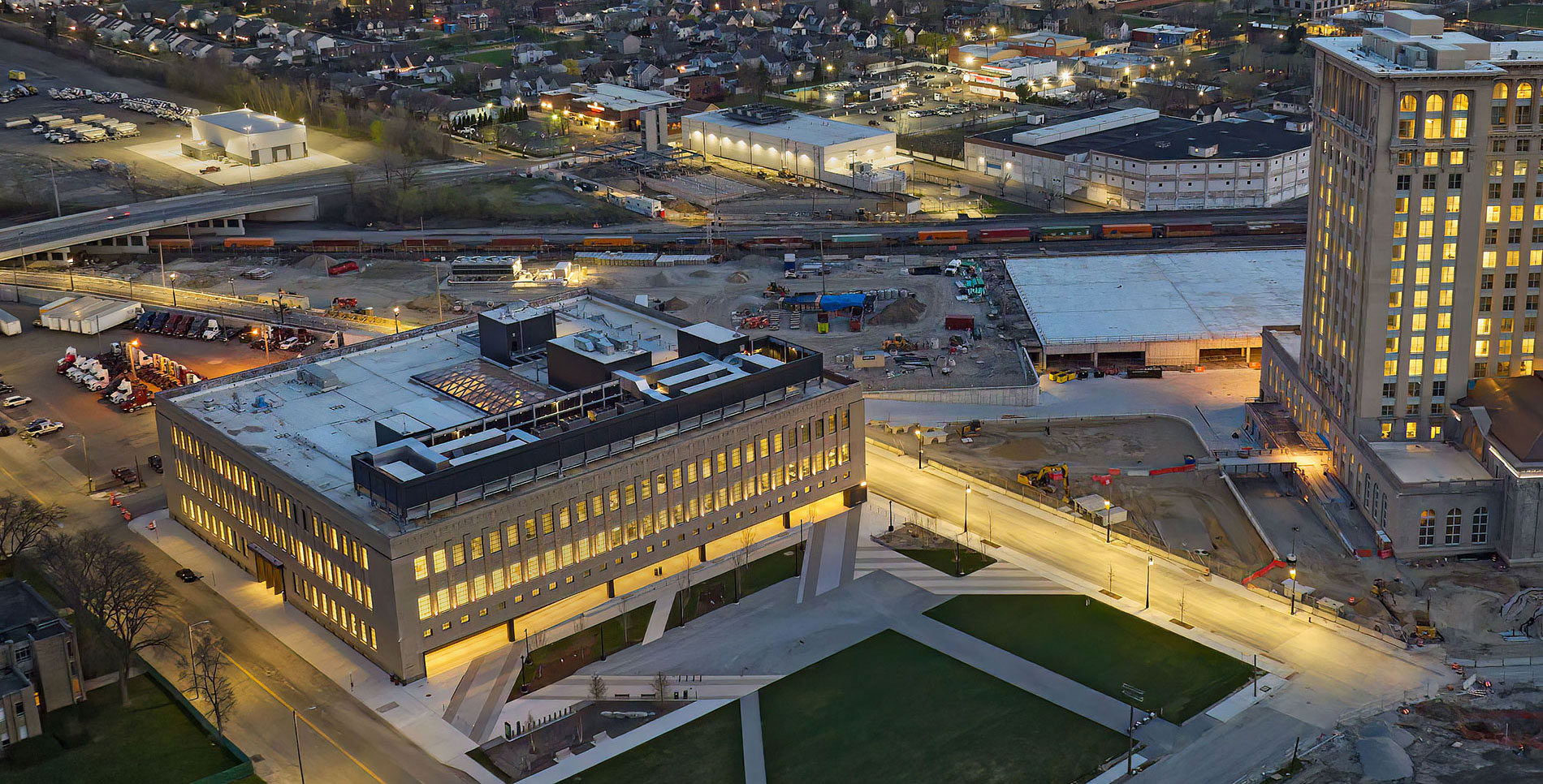Celebrating the launch of Michigan Central and the Opening of Newlab Detroit
April 25, 2023
Newlab has partnered with Michigan Central to create Detroit’s newest hub for mobility transformation. Here, our most pressing mobility challenges will be tackled with collaborative research, problem-solving, and new pilot projects.
“Detroit is the place where the next century of mobility innovation will be imagined and built,” said Newlab co-founder David Belt.

Right here in Detroit, Newlab is creating a national center of gravity for start-ups, entrepreneurs, engineers, and scientists to work in partnership with the community and government stakeholders to build breakthrough companies focused on solving some of the greatest challenges facing our future. The building includes purpose-built workspaces and prototyping labs to accelerate research and design.
Newlab Detroit has already attracted more than 150 members from more than 30 companies. Half of these partners are from the Detroit area, and a third are led by founders from communities underrepresented in tech. Among the industry-leading start-ups already based at Newlab are Airspace Link, Cavnue, Grounded, wheel.me, and JustAir.
“It’s really important, as we think about building the entire ecosystem, that we function at the intersection of mobility and society to prepare our community for future careers,” said Clarinda Barnett-Harrison, director of skills at Michigan Central.
Newlab Detroit will offer training geared toward skills development for metro Detroiters of all ages.
“When we increase access to mobility, we increase equity in access to education, better jobs, and equal opportunity for everyone,” said Joshua Sirefman, chief executive officer of Michigan Central. “This is just the start.”
A recent three-day workshop with Michigan Central, Newlab, and mobility and community partners focused on how to plan and organize the next round of pilot projects to solve challenges that residents are facing here and around the world.
Among the first challenges Newlab and Michigan Central are tackling, in partnership with the City of Detroit, is building sustainable, equitable transit in underserved neighborhoods. One new pilot project is addressing Detroit’s ongoing efforts to reduce pedestrian fatalities. The project explores new strategies for making people safer when crossing the street, including an automated crossing guard and specialized lighting technology.
“The pedestrian crossing pilot project will make our neighborhood safer for children,” said Tanya Saldivar-Ali from the 18th Street Design Build Green Hub. “And having open conversation between residents and Newlab is beginning to demystify the technology and build trust.”


